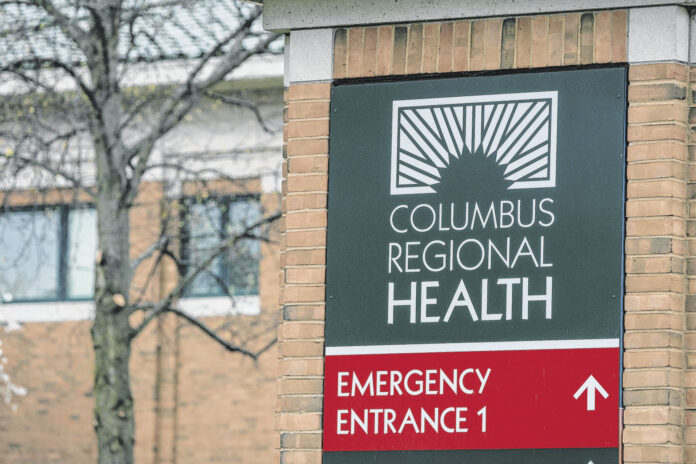
Columbus Regional Health plans to raise its minimum starting wage for staff to $15 per hour as it seeks to retain existing employees and attract new ones.
The hospital system, which is currently paying new hires at least $12.75 per hour, said the pay increases will take effect Oct. 24. Employees currently making less than $15 per hour will receive raises.
Those getting raises include many frontline essential workers, including environmental services attendants, phlebotomists, patient care technicians, food service aides, among others, said CRH spokeswoman Kelsey DeClue.
Overall, more than 580 CRH employees will be impacted by the wage raises, the hospital system said. CRH employs about 2,200 people, DeClue said.
The pay raises at CRH are expected to result in an additional annual investment of $1.7 million in the hospital system’s workforce, CRH said.
“Columbus Regional Health is committed to a compensation philosophy that recruits, motivates, rewards and retains highly talented team members,” said CRH President and CEO Jim Bickel in a statement. “It is one of the benefits, among other programs, we utilize to attract and retain the talent and skills we need to serve our patients.”
The announcement comes amid a national shortage of health care workers that has worsened during the pandemic and could deepened by the end of the decade.
About half of health care workers reported feeling burned out or anxious due to the stresses of working in the field during the pandemic and about 30% said they have thought about leaving the profession, according to an April study by the Kaiser Family Foundation and The Washington Post
At the same time, demand for healthcare workers is expected to steadily grow by the end of the decade.
Economists at the Bureau of Labor Statistics project that employment in healthcare and social assistance will grow faster than any other sector of the economy from 2020 to 2030 — adding an estimated 3.3 million jobs over that time period.
The BLS also projects an average of around 194,500 openings for registered nurses each year through 2030, as well as 104,400 openings for medical assistants, 20,700 openings for EMTs and paramedics and 19,500 openings for phlebotomists.
“Factors that are expected to contribute to the large increase include rising demand for the care of an aging baby-boom population, longer life expectancies and continued growth in the number of patients with chronic conditions,” the bureau said Sept. 8.
Many of the openings are expected due to workers changing fields or exiting the work force, according to the bureau.




